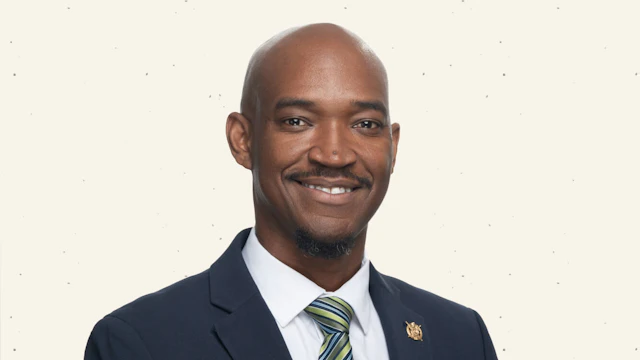
This Volunteer Spotlight story originally appeared in AFSP's 2023 Annual Report. To read other inspiring Volunteer Spotlight stories, and to learn more about our exciting work, click here.
Keon Lewis first became aware of the need for suicide prevention and support for those affected when, as a student at the University of North Carolina at Greensboro, he learned of college friends who had lost family and close friends to suicide. He was struck by how the stigma many still felt around the subject made it hard to know how to have necessary conversations around the experience — and how he and his friends were unaware of how to access any support resources on campus.
Now, as an alumnus and member of Omega Psi Phi Fraternity, Inc., the first international fraternal organization to be founded on the campus of a historically Black college, Keon has helped forge a partnership between Omega Psi Phi and AFSP. Through this partnership, both organizations will work to prioritize mental health and suicide prevention in Black communities nationally, and at a grassroots level through our collective chapters.
“My initial connection with AFSP came about in 2016. Omega Psi Phi had launched its newest program, Brother You’re On My Mind, with the mission to educate our communities on the impacts of depression and stress, and the importance of seeking help and guidance. In researching how I could best help bring the program to our community, I found my way to AFSP’s Charlotte Out of the Darkness Walk. It wasn’t long before I joined the planning committee. Now, I serve as board chair for AFSP’s North Carolina Chapter.
When thinking about the cultural considerations of the Black community in relation to mental health and suicide prevention, one has to understand the historical context of why it has been this way for so long. When you have a community that has dealt with the weight of enduring generations of trauma (externally and internally), along with socioeconomic disparities, injustices, and systemic barriers, it paints a picture of why these dynamics exist within our Black communities. At the earliest ages, our communities have been taught to be tough, resilient, ‘never let them see you cry,’ ‘don’t show mental weakness,’ and ‘allow your faith to be the answer to all your problems.’
We have just begun scratching the surface of making it comfortable to have these tough yet necessary conversations around mental health. Our national partnership between AFSP and Omega Psi Phi will spark community engagement and help us eliminate stigma, uplift the power of lived experiences, and advance equitable access to mental health resources.
AFSP’s education programs are a critical tool to help advance our mission. As a trained Talk Saves Lives presenter, it is so gratifying to conduct this presentation and engage with audience members who at first feel vulnerable, then safe and uplifted by it.
I’m very excited by the development of a new AFSP education program entitled, L.E.T.S. Save Lives: An Introduction to Suicide Prevention for the Black Community, which is in its pilot stage. I appreciate what the acronym stands for: Listening, Empathy, Trust, and Support. The development of more tailored educational programs such as this one will open more doors for collaboration and conversation within the Black community.
This work has enabled me to give back to the community in a uniquely powerful and gratifying way. It’s made me aware of individuals, some of whom were close to me, who were looking for the right space and time to share their stories without judgement. It brings me joy that my advocacy has become a catalyst in helping others find hope.
I think back to a conversation I had with a frat brother about my advocacy journey. He told me that I was doing something beyond volunteering. He told me I was fulfilling a calling.”